A lot has happened since the last time I wrote about Warrior Nun for The Fandomentals. Simon Barry announced Netflix didn’t renew the show for a third season, and the fandom immediately went up in arms. The #SaveWarriorNun movement is still going strong a month and a few days after Barry’s announcement. To me, it just makes sense that Warrior Nun’s untimely cancellation caused such a stir — it just is that good.
No show is perfect, of course, but Warrior Nun gets many things right. Working with a premise that (to many who haven’t seen it) sounds ridiculous, the show manages to tread the line between serious drama, action, fun, and comedy. If you buy into the story and hop on the ride, Warrior Nun has a lot to offer, including the exploration of deep themes like agency, faith, purpose, and sacrifice. And at the center of those themes and the story, there’s Ava and Beatrice.
Ava and Beatrice are more than Avatrice
Warrior Nun isn’t a romance, genre-wise. However, one of the key elements that make the show so special is how the writers handle the protagonist’s romantic relationship. This has been said before, but I’ll repeat it: Ava, Beatrice, and Warrior Nun are special because they’re more than just the ship.
Many shows with young adult or teenage protagonists can fall into the trap of reducing their characters to ‘the ship.’ Sometimes, this reaches the point where characters don’t have a storyline outside of their romantic entanglements, even if those shows aren’t meant to be in the romantic genre exclusively. This is especially true of the protagonists’ love interest, who often exists solely in service of another character.
The fact that Ava and Beatrice do not start as love interests — in the strictest sense — makes a marked difference. The show allows them to exist separately first. By the time season one hints at something between Ava and Beatrice, we understand who they are individually, how they’ve gotten to that point, and why they would be drawn to each other.
When wwe see Ava and Beatrice opening up to each other, we know it’s significant because we know them both. This is why a couple of emotionally charged scenes and a cheeky smile from Camila kept all 20 of us in the fandom (and us at the Fandomentals) going for over two years. It’s also why their season two dynamic immediately clicked and flowed so beautifully without having a character like Hans nudge-nudge-wink-wink at us.
Another thing that makes Ava and Beatrice’s connection so poignant for the audience is that both their stories — individually and together — express and explore the shows’ central themes. In fact, they’re both so intrinsically linked to the story Warrior Nun is trying to tell that neither of them would have gotten to the same place without the other. It’s something I hadn’t seen in a WLW ship since perhaps Xena: Warrior Princess.
Thematic Complements
Ava and Beatrice aren’t just good personality matches for each other — they’re thematically made for each other. Most plot-driven stories tack on romance as a prerequisite. A romantic entanglement can serve to give depth to the protagonist and sometimes raise the stakes. ‘Avatrice’ does that, but it also adds to the plot and is an integral part of it.
This is also why it’s hard — or impossible — to imagine Warrior Nun introducing a random love interest for Ava or Beatrice. Season one’s JC wasn’t so much a love interest as a plot device, representing a path of avoidance of reality represented by his own story of leaving everything behind after pain and loss. JC was never going to stay.
From the beginning, Warrior Nun explores similar themes with Ava and Beatrice’s separate stories, starting at opposite extremes in some ways and paralleling each other in others. They’re running in opposite directions, hurtling towards each other, while many external and internal factors try to push them away from each other. To me, two of Warrior Nun’s core themes are purpose (the focus of season one) and sacrifice (the focus of season two).
Ava and Purpose
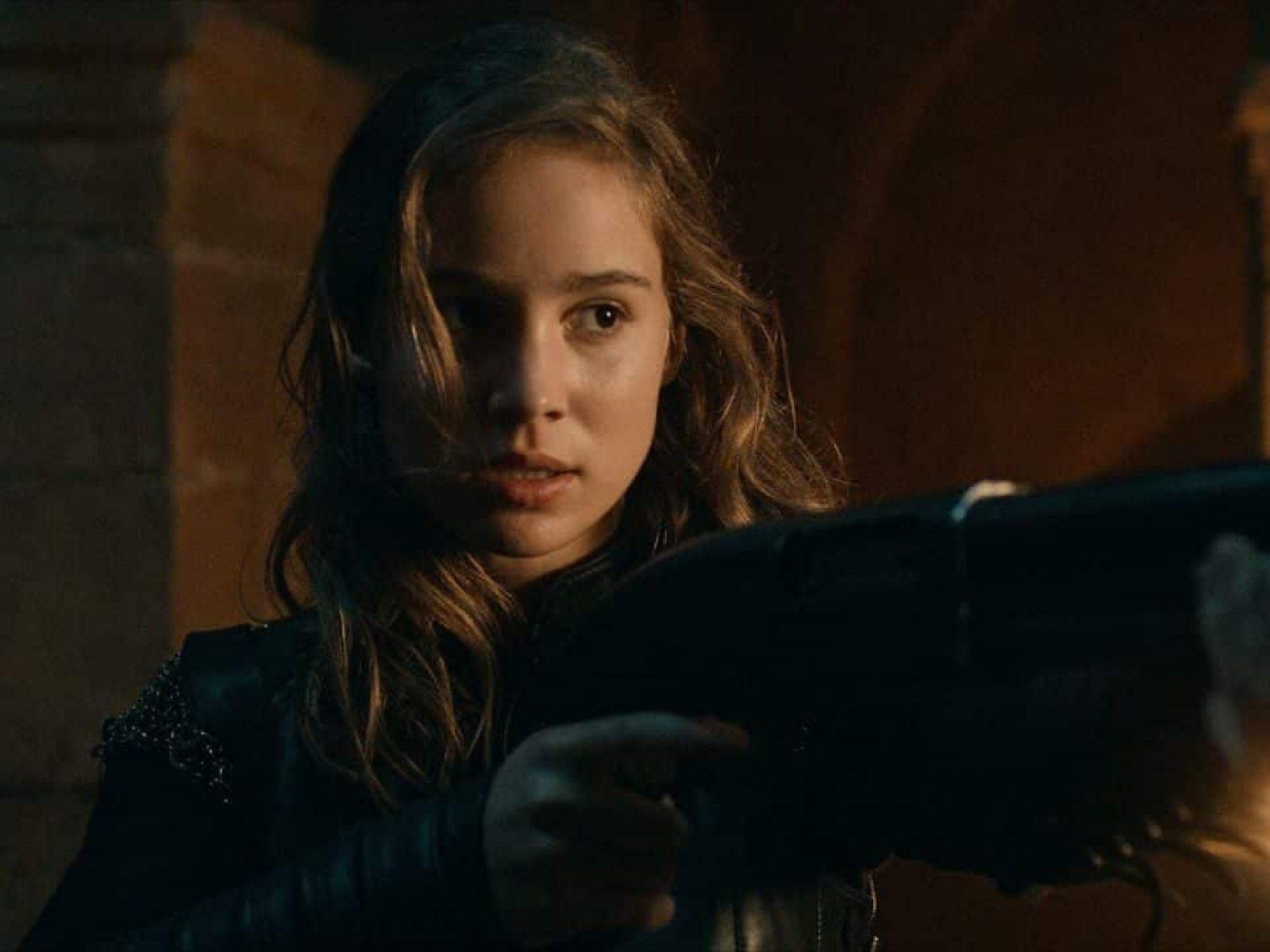
Ava and Beatrice start off with opposite relationships to purpose. Ava doesn’t know purpose because she’s never had a chance to. She was seven when she was orphaned and paralyzed, left in the care of an abuser who murdered her. Her childhood was rudely cut short, and the discovery of the world and herself was thwarted. Naturally, she wants to go out and have those experiences before committing to anything, especially to someone else’s ideals that the Order of the Cruciform Sword (OCS) wants to unceremoniously put on her.
Her experiences of the world and herself are limited, and she wants and deserves to figure both. Her desire to be unburdened by authority is why JC and his friends’ lives are so enticing to her.
Ava also understands intrinsically that she has inherent value as a human being, and that her voice and decisions should be respected. Although she’s spent the past 12 years with people who made her feel unloveable, it’s fair to assume the first seven years of Ava’s life were probably filled with love. We know nothing for certain about Ava’s mother, but I’m willing to bet she loved Ava and spent those foundational years showing her.
It’s Shotgun Mary who gets through to Ava about purpose. When they stay in that small town in season one, she shows Ava how finding purpose in helping others can form bonds and communities. In her grief about Lilith, she also indirectly shows Ava how shared purpose can create familial bonds with unconditional love.
Jillian also teaches Ava something about purpose and motivation. When she seeks Jillian out, Ava wants to help the possessed people and OCS already, but also wants to live her life. She’s willing to look in every corner for an option that can give her both. Ava discovers it’s not merely scientific curiosity that drives Jillian — it’s love.
In the end, when Ava goes back to the OCS, it’s not because it’s the safest choice or because she believes in the Church. She has gotten a peek and a taste of what true, sincere purpose feels like. Ava now knows why helping people can be fulfilling and how it feels when someone has your back, and knows the OCS is where she can find that community she craves.
Beatrice and Purpose
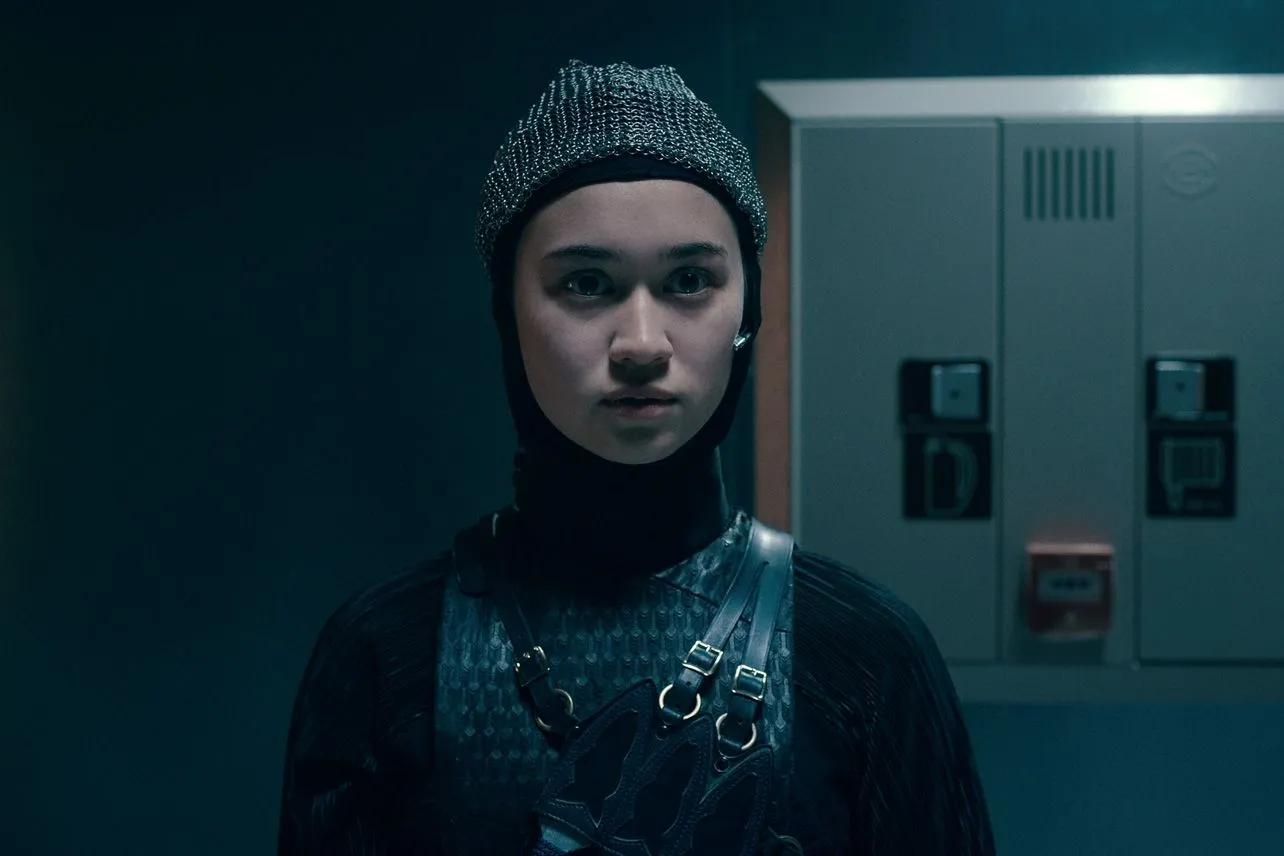
For Beatrice, purpose is all she knows. But her sense of purpose is misplaced. From what we can glean, Beatrice was raised in an environment where duty and purpose came before personhood. Like for Ava, Beatrice’s exploration of the world and herself was cut short. Her parents, who shipped her off to boarding school after she rebelled or disobeyed in some way (potentially related to her queerness).
Unlike Ava, Beatrice doesn’t have an inherent understanding of her value as a human. Instead, she measures her value by her skill and her faith. We don’t know much about Beatrice’s parents, but I assume she had a rigid and strict upbringing.
Authority and purpose come together and mix with her faith. Combine that with the belief that joining the Church can ‘save her eternal soul’ for the perceived sin of her queerness, and we get a Beatrice that follows orders even when she knows they’re wrong.
She helps kidnap Ava even when she’s uneasy about whether Duretti and Vincent plan to take the Halo, potentially endangering Ava’s life. Later, she breaks into a private business and follows through with robbery until the end despite being uncomfortable with it. When Duretti orders her relocation under a clearly suspicious agenda, she’s initially willing to go through with it, and gets as far as the bus stop.
Ultimately, Beatrice’s own sense of morality and love for her sisters win out. With everything that happens in season two, it’s easy to forget that Beatrice is also mourning the death of not one, but two friends by the time she’s in that bus stop in episode seven. She’s good at keeping a straight face and compartmentalizing, but perhaps finally being away from the Cat’s Cradle and alone with just her thoughts for a few hours allow her to truly take in everything that’s happened.
Beatrice is part of a found family, and ultimately the bonds she’s formed with her sisters that lead her to finally understand purpose better than before — true, sincere purpose, not one that’s imposed based on external dogmas.
Ava and Beatrice and Purpose
Starting at opposite ends of the spectrum, Ava and Beatrice arrive at the same place, in a way. Both gain a new understanding of what purpose is and what it means to them personally. Ava has purpose for the first time, and Beatrice gains a renewed sense of it that’s more true to herself. Moreover, both understand a bit more about life itself and why it’s worth living it with and for other people.
Warrior Nun and Sacrifice
You can’t make a show about the Catholic Church and not talk about sacrifice in one way or another. From the first season, the theme is sprinkled into the plot and character stories. Shannon is ready to give her life in episode one, while Mary resists the notion that they should give up so fast (which echoes painfully in season two). Lilith gives her life for Ava (or the Halo? Unclear.) at the last moment while fighting the Tarask.
For Ava and Beatrice, sacrifice is ever-present, though in different ways. In season one, Ava is haunted by it, with people asking her to sacrifice her newfound freedom left and right, only for her to discover that this would very likely mean the ultimate sacrifice of her life. Then, Ava takes a stand against sacrifice — her potential one and her predecessors’ very real ones — by declaring herself the last Warrior Nun.
This blows up in everyone’s faces due to Vincent’s betrayal, which puts sacrifice back on the table for Ava in season two. But first:
Beatrice and Sacrifice
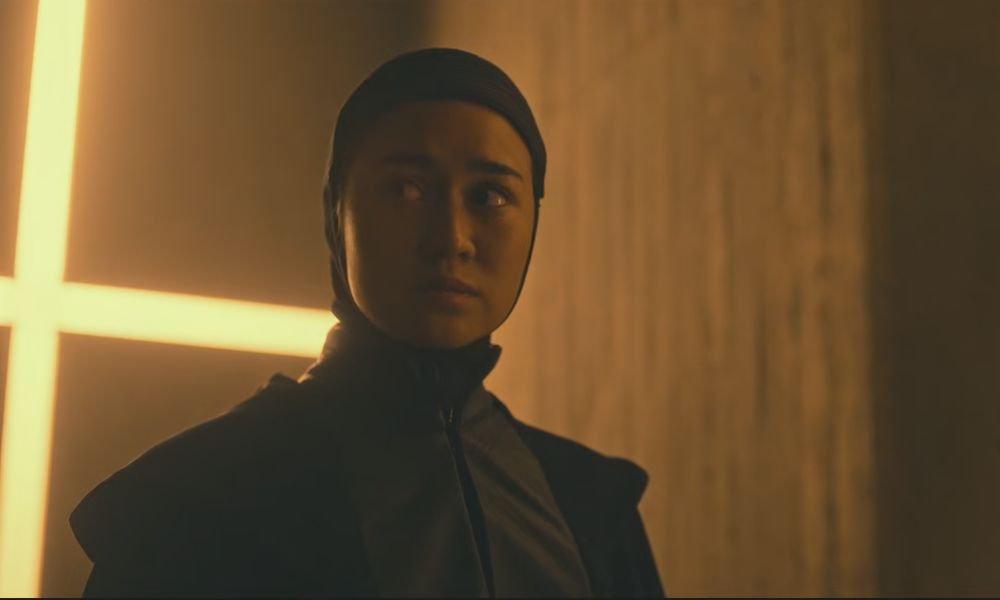
Meanwhile, sacrifice is ever-present in Beatrice’s because she lives in it every day. When we first meet her, she’s already sacrificed, not her literal life, but herself, as in, who she is and what she wants. Sacrifice is Beatrice’s MO in season one up until that bus stop, where she takes a stand and lets herself choose the cause she wants to fight for. Mind you, she’s still submitting to some form of sacrifice, but sacrificing less of her personhood.
In season two, she learns that what she’s sacrificed was earned by the higher power she thought she was presenting it to. Up until this point, sacrifice has taken a lot from Beatrice, a friend, her own happiness, and freedom chief among them. All this time, there was an end goal to these sacrifices: the promise of salvation at the end of a life of sacrifice.
Beatrice’s strained relationship with her religion in season two puts all of that into question, leaving her unmoored. The events of the season one finale — including Vincent’s betrayal, a man she trusted fully — have put everything into question. She’s dedicated her life and sacrificed her own wants and desires at an altar built on lies. The foundation of her faith is crumpling at Adriel’s feet.
Has all her sacrifice been for nothing? Not to mention, the sacrifices of her fallen sisters who died in the name of that same lie. Inevitably, Beatrice’s relationship to sacrifice changes. Still, she’s certain she’s fighting for the right side and is undoubtedly still willing to die for the cause. After all, she’s a character who sees the big picture first, before looking at the granular detail. She also knows her OCS sisters would and could sacrifice themselves at any time. Beatrice diligently holds Mother Superion’s hand as she makes the ultimate sacrifice, taking yet another loss with grace and composure.
However, unwittingly, Beatrice floats away from her previous attachment to sacrifice, like a little paper boat on a puddle. The lines between duty and want blur, and the parts of herself she’s long kept squashed float to the surface.
At the same time, she’s taking a really hard lesson in what she’s not willing to sacrifice, not even for the fate of the world — Ava. This puts a strain on Beatrice’s sense of self, and she struggles with it a lot, leading her to close in on herself and put her walls back up at a critical time.
Ava and Sacrifice
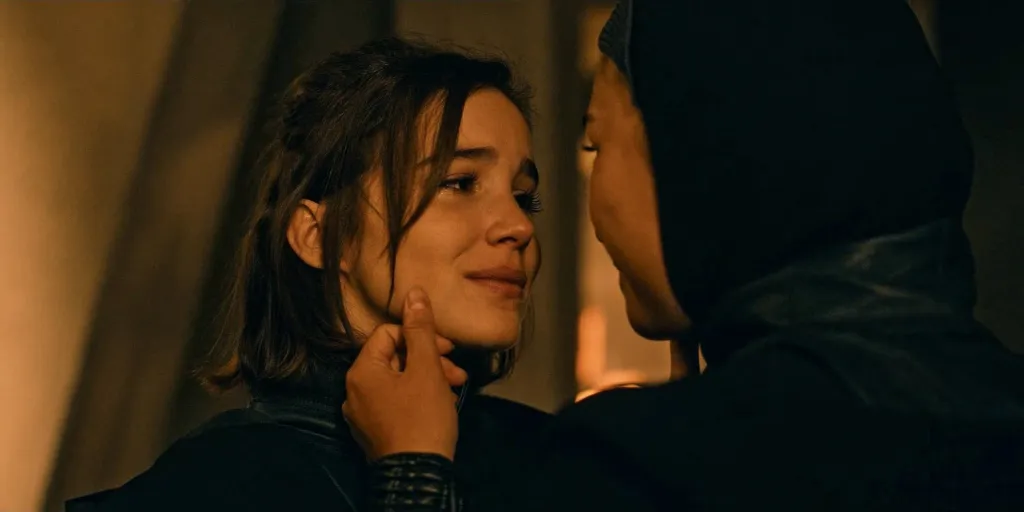
Ava wants to live. She has unmatched hunger, curiosity, and joy for life. Following the events of season two, she’s also come to learn that fighting is worth it because it’s for life, herself and others’. When we find her in the Alps, she’s soaking everything in but also desperate to get back in the fight. Her sense of purpose has strengthened since we last saw her, fueled by Mary’s loss.
Her connection to the world through other people is shown in many ways, not just with her OCS family but with Hans and the bar regulars. Ava’s never been someone to ignore distress, and now that she’s more capable of helping, she runs to do it without thinking about it. Following her story from season one, Ava learns more about life in season two. While her initial focus was just getting to live, period, her experiences since then have taught her more about what makes life worth living — other people.
Throughout the season, Ava throws herself at danger headfirst time and time again. Although she still expresses her determination to stay alive in quieter moments, her willingness to sacrifice her life is growing not-so-silently throughout the season.
Additionally, Ava’s relationship with sacrifice is heavily influenced by Michael and Reya. Michael’s declaration is absolute — their mutual sacrifice is the only path forward. Just like in season one, Ava exhausts every option before submitting to the will of a higher power trying to impose their will upon her. Then, she encounters Reya.
Ava’s interaction with Reya is one of the biggest open-ended questions of season two, no doubt to set up season three’s storyline and beyond. We’re not privy to the totality of what Ava saw or any potential conversation she might have had with Reya. Moreover, I’m not ready to write off the possibility of mind control or unnatural influence for two reasons: Lilith’s inability to control her own actions in late season one and Michael damn near fainting after seeing her face and immediately adopting a one-track mind with the bomb plan. As such, there’s necessarily an asterisk here.
In any case, after seeing Reya, Ava has decided to sacrifice herself. She only shares her intention with Michael and Mother Superion, whose story about losing the Halo also influences Ava. Superion ostensibly walked in alone due to hubris and pride, while Ava’s walking into this sacrifice without. Unlike Superion, Ava’s only motivation is keeping her loved ones safe, not just from getting physically hurt, but also to protect them from having to see her die. Plus, she knows any of the others would sooner lock her in a divinium box than let her go through with it.
Ava’s also in love for the first time. She wants to live and explore this thing that’s building between her and Beatrice that she’s so patiently nurtured. Now that Ava can tell the difference between infatuation and love, she’s willing to wait for it. But to do that, she needs to fight Adriel and win. After seeing Reya, she becomes convinced that’s not possible.
Ironically (and unfairly) for Ava, the reason she finds life so precious is also the reason it’s worth dying. After just a few months with her second lease in life, having found family, support, and love, she willingly walks into her own self-sacrifice.
Ava and Beatrice and Sacrifice
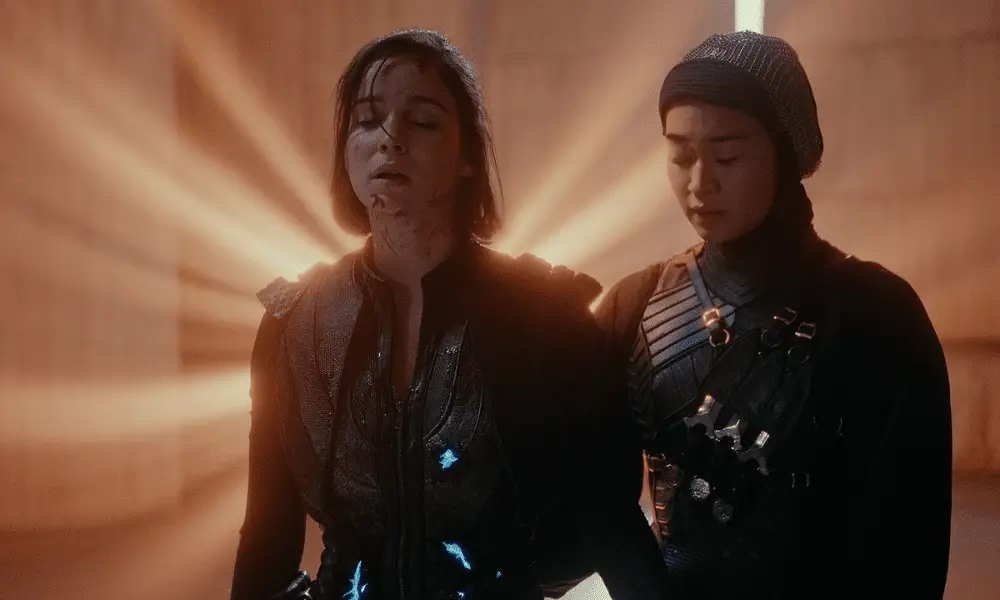
Throughout season two, the possibility of Ava’s death is real for both of them, and they both fight it. Beatrice tries to rationalize it with duty until she can’t anymore. Ava hides her own willingness to die for others even from herself. Then, she hides from Beatrice to shield her from her decision. Ava’s journey learning what she’s willing to sacrifice for; Beatrice’s is towards discovering what she’s not. At the end of season two, they meet at this crossroads.
Although the finale is sad due to their separation after having just found their way to each other, their mutual rejection of Ava’s sacrifice wins. Not only does Reya’s plan not work, but Ava discovers that there really was another way. On top of that, Beatrice rejects Ava’s readiness to die and ultimately rejects her own duty and sacrifice to the Halo. Ava and Beatrice, together, opt for the option that gives them a chance to find each other again, even if slim.
As a result, Ava’s willingness to live is reignited and she reinforces that there’s always hope. Meanwhile, Beatrice relearns sacrifice, and finds she is willing to sacrifice her want, but not herself, not anymore.
Never in a Bubble
The fact that both Ava and Beatrice have individual storylines with the same core themes makes their relationship all the more impactful. Each of them has their own relationship with purpose and sacrifice. Not only that, but other characters also explore the same themes, like Mother Superion, Shotgun Mary, Vincent, and, of course, Lilith. This gives us a kaleidoscope of perspectives and ensures that Ava and Beatrice are part of the whole that is Warrior Nun — not as a unit, but as individuals.
Neither of them exists only in relation to the other, which can happen a lot in other shows that put their ‘ships’ in a bubble inside which everything they do is about each other. Ava and Beatrice influence each other, but they’re only one of many parts of each other’s stories. Thus, their individual decisions are never dependent on each other. They’re both influenced by a combination of their established personalities and pasts, the situation, and a variety of other characters who are equally important in their stories.
This treatment gives both of them dignity and agency as individual characters and helps us clearly discern where each of them is coming from at any given moment. The tragedy of where they deviate in the path to each other near the end of season two is clearly drawn by who they are. We can see the choices they’ll make before they happen because we know them both — that’s good storytelling.
The end of season two sees Ava and Beatrice torn apart by their desire to save the other, but it sets them both on paths to find more answers about the world and themselves. I know the fandom is fighting to get Warrior Nun back, and I truly hope we see what season three has in store for everyone.
However, even if we never see these characters again on screen, I’ll never consider the season two finale the end of Ava and Beatrice’s story, individually or together. To me, it feels like a beginning, not a conclusion. After all, they both chose the only path that could lead them back to each other.
Images Courtesy of Netflix
Have strong thoughts about this piece you need to share? Or maybe there’s something else on your mind you’re wanting to talk about with fellow Fandomentals? Head on over to our Community server to join in the conversation!

